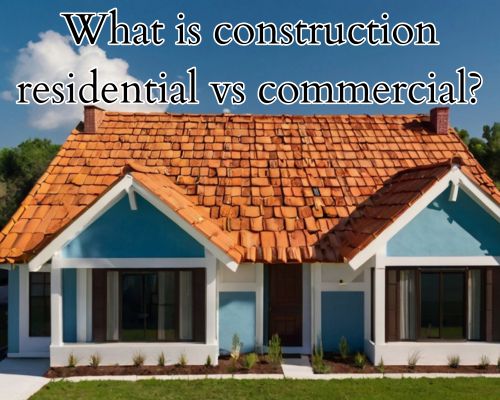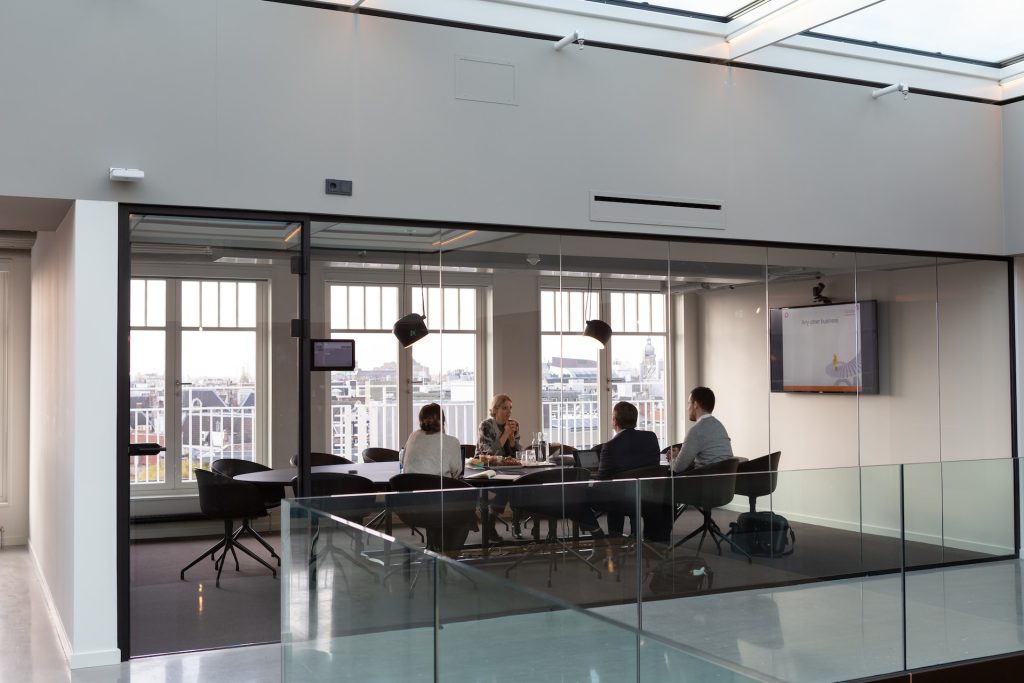
What is Construction Residential vs Commercial? A New Jersey PerspectiveWhat is Construction Residential vs Commercial? A New Jersey Perspective
When it comes to construction in New Jersey, the terms residential and commercial often get thrown around like a hot potato at a backyard picnic. But what’s the real difference? Understanding construction residential vs commercial is crucial whether you’re a homeowner eyeing a new build in Jersey City or a business owner setting up shop in Newark.

With Charles Jimerson of CJ Commercial Roofing NJ, we’ll unpack the core differences, local regulations, cost factors, and project scopes for residential and commercial construction in New Jersey, helping you navigate your next building project with clarity and confidence.
Defining Residential Construction in New Jersey
Residential construction refers to building structures meant for people to live in. This includes:
- Single-family homes
- Multi-family buildings like duplexes and townhouses
- Apartment complexes
- Condominiums
In New Jersey, residential construction often aligns with strict zoning laws and building codes set by municipalities such as Jersey City, Hoboken, and Princeton. These regulations ensure safety, habitability, and aesthetic harmony within neighborhoods.
Key Characteristics of Residential Construction
- Scale and Scope: Generally smaller in scale compared to commercial projects. Residential builds might involve one to several housing units.
- Materials and Methods: Often wood framing, drywall, and roofing materials suited for homes.
- Permits and Codes: Must comply with the New Jersey Uniform Construction Code (UCC), local zoning ordinances, and energy efficiency standards (like NJ’s Energy Master Plan).
- Project Timeline: Typically shorter, ranging from a few months to a year depending on complexity.
Local contractors like those in Middlesex County specialize in residential work, offering personalized services from kitchen remodels in suburban Edison to new construction in growing towns like Toms River.
What Defines Commercial Construction in New Jersey?
On the flip side, commercial construction encompasses buildings designed for business activities. This category is broad, including:
- Office buildings
- Retail stores and shopping centers
- Warehouses and industrial facilities
- Hotels and restaurants
- Medical centers and schools
New Jersey’s commercial construction sector thrives around urban hubs like Newark, Jersey City, and Camden, where economic development and infrastructure investments boost demand.
Commercial Construction Distinctions
- Scale and Complexity: Larger and more complex projects with multiple floors, extensive electrical/plumbing systems, and specialized materials (steel, concrete, glass facades).
- Regulatory Requirements: Must adhere to more stringent building codes, fire safety regulations, Americans with Disabilities Act (ADA) compliance, and sometimes environmental impact assessments.
- Timeline and Budget: Longer timelines (often over a year) and larger budgets compared to residential projects.
- Purpose-driven Design: Functionality tailored to business needs, customer flow, or industrial processes.
Local examples include the transformation of Jersey City’s waterfront with high-rise commercial developments or the growth of retail hubs in Cherry Hill. For more, visit https://cjcommercialroofingnj.com/.
Core Differences Between Residential and Commercial Construction in New Jersey
| Aspect | Residential Construction | Commercial Construction |
|---|---|---|
| Purpose | Living spaces | Business operations |
| Building Size | Smaller scale (single/multi-family) | Larger, multi-story, expansive buildings |
| Materials Used | Wood, drywall, shingles | Steel, concrete, glass |
| Codes and Permits | UCC, local zoning, energy codes | UCC + ADA, fire safety, environmental |
| Timeline | Months to ~1 year | 1+ years, depending on complexity |
| Cost | Lower per square foot | Higher, due to complexity and scale |
| Contractor Specialization | Homebuilders, remodelers | Commercial contractors, specialists |
Why Understanding These Differences Matters in New Jersey
For anyone in New Jersey planning a construction project, distinguishing between residential and commercial construction is vital for:
- Budget planning: Commercial projects tend to cost significantly more upfront.
- Compliance: Ensuring you meet the right permits avoids costly delays and fines.
- Choosing the right contractor: Residential builders differ from commercial experts in skill sets and experience.
- Design considerations: Tailored to either family comfort or business efficiency.
Local Insights: New Jersey Construction Landscape
New Jersey’s unique geography and economic profile shape its construction market:
- Population density: Dense areas like Jersey City demand vertical residential and commercial builds, while suburban counties (Monmouth, Ocean) see more sprawling residential homes.
- Regulatory environment: The New Jersey Department of Community Affairs (DCA) oversees construction regulations statewide. Local municipalities also have zoning boards that influence project approval.
- Sustainability initiatives: NJ is pushing green building practices, especially in commercial projects, aligned with LEED certifications and state energy codes.
- Labor market: Skilled tradespeople—carpenters, electricians, plumbers—are in demand across both sectors, but commercial projects often require more specialized teams.
SEO Goldmine: Salient Entities and LSI Keywords for This Topic
To juice this article’s SEO mojo, here are key entities and latent semantic indexing (LSI) keywords sprinkled naturally for New Jersey context:
- Salient entities: New Jersey Department of Community Affairs, Jersey City, Newark, Hoboken, Middlesex County, Monmouth County, LEED certification, Uniform Construction Code (UCC), ADA compliance
- LSI keywords: residential building permits New Jersey, commercial construction contractors NJ, NJ zoning laws, building codes New Jersey, sustainable construction New Jersey, home builders NJ, office building construction NJ, construction project management New Jersey
How to Choose the Right Construction Type for Your Needs in New Jersey
- Evaluate Your Purpose: Are you building a family home, an apartment complex, or a retail outlet? Your project type guides the construction category.
- Consult Local Experts: Talk to builders familiar with New Jersey’s regulations and climate—whether residential specialists in Princeton or commercial contractors in Camden.
- Understand Your Budget and Timeline: Residential construction generally offers quicker turnaround and lower costs, whereas commercial projects require longer lead times and bigger investments.
- Check Permits and Compliance: Navigating NJ’s building codes can be tricky; expert guidance helps avoid delays.
- Consider Sustainability: Both residential and commercial projects benefit from energy-efficient designs encouraged by NJ state policies.
Conclusion: Mastering Construction Residential vs Commercial in New Jersey
The distinction between residential and commercial construction in New Jersey is more than just jargon—it’s a framework that shapes project scope, costs, regulatory hurdles, and contractor choice. Whether you’re eyeing a cozy single-family home in Warren County or a multi-story office complex in Jersey City, understanding these differences is your blueprint for success.
Navigating NJ’s complex landscape of zoning laws, permits, and local building codes might seem daunting, but armed with knowledge and the right partners, your construction project can rise from blueprint to reality—solid, compliant, and built to last.


